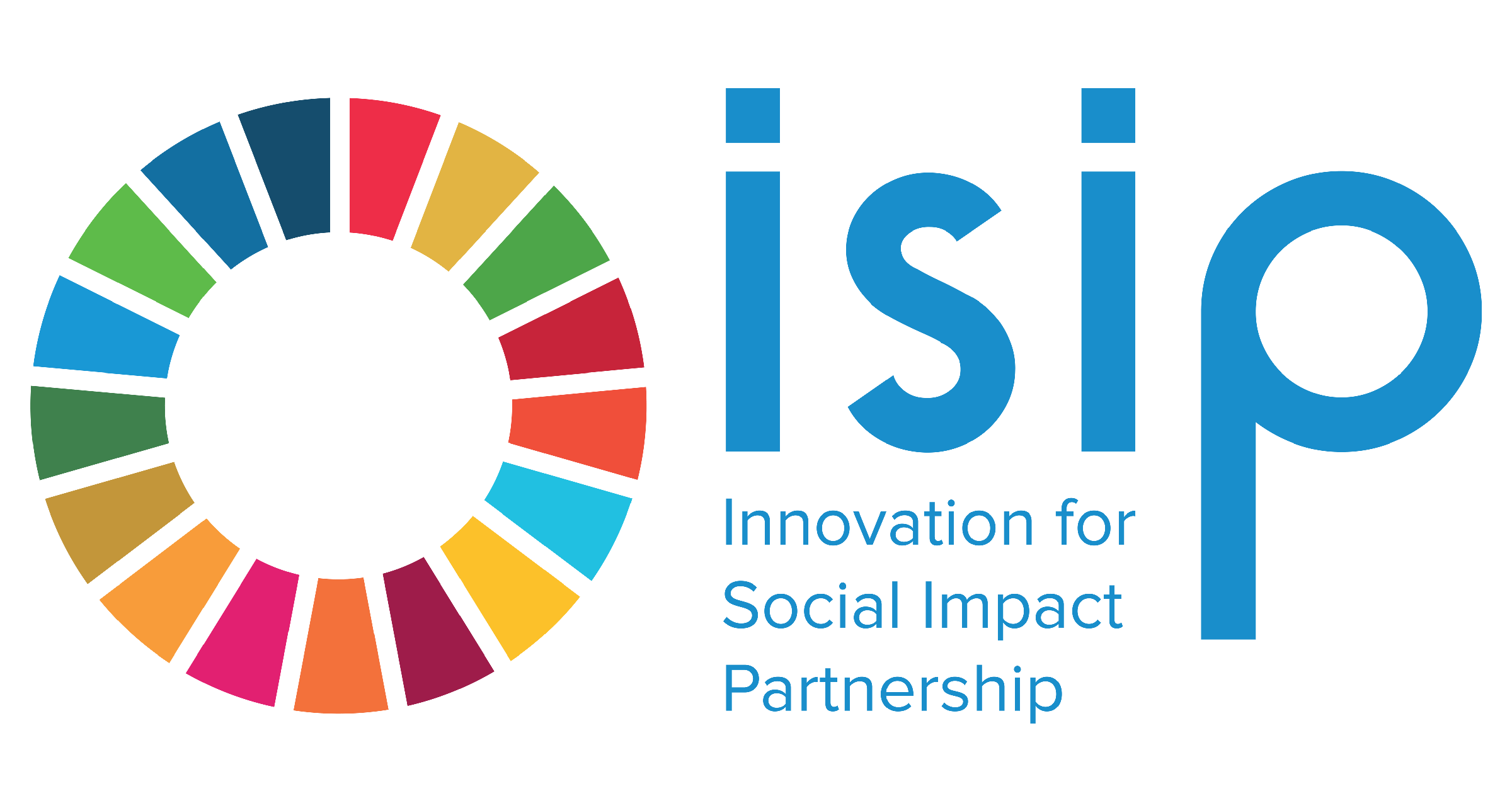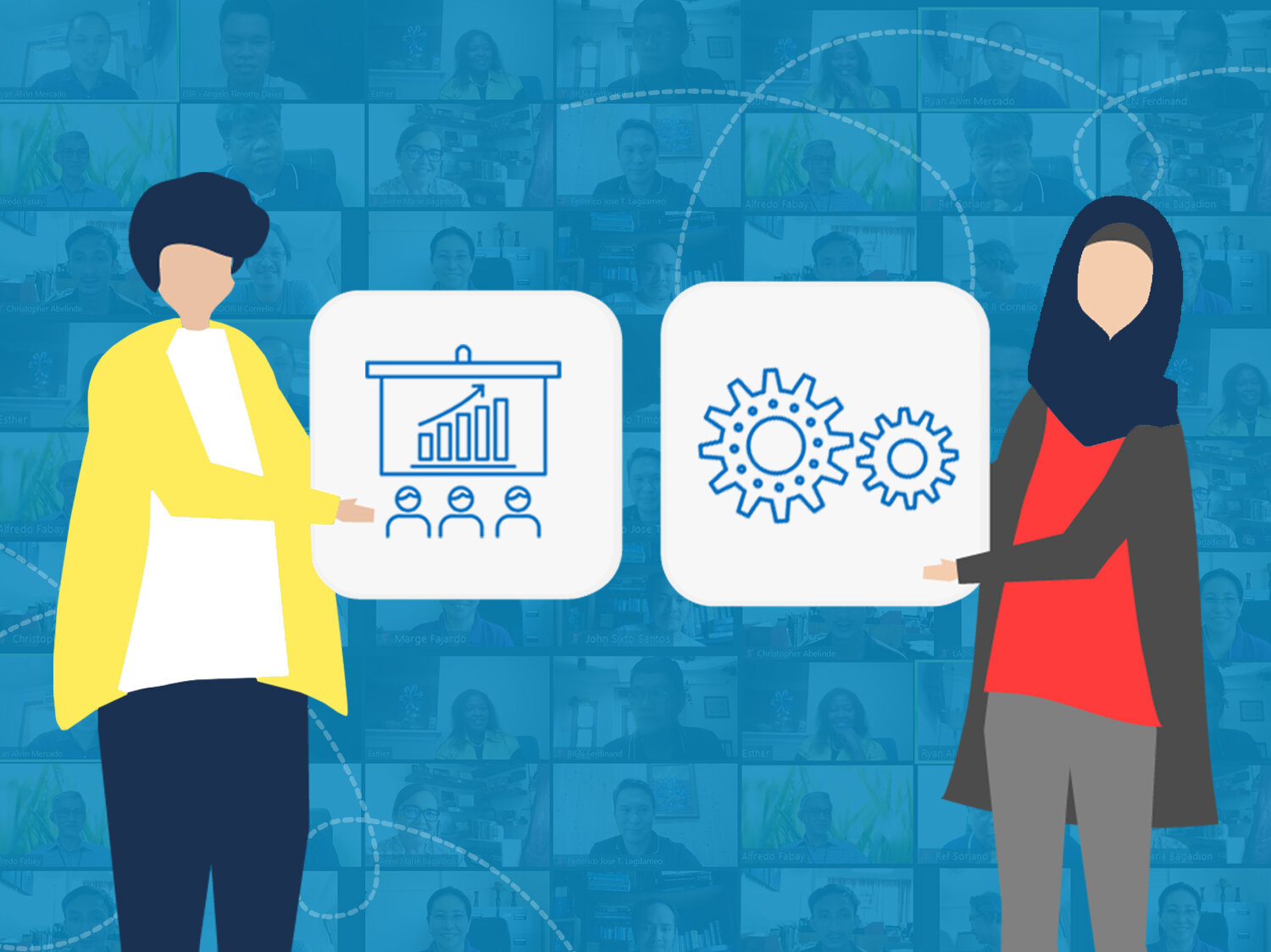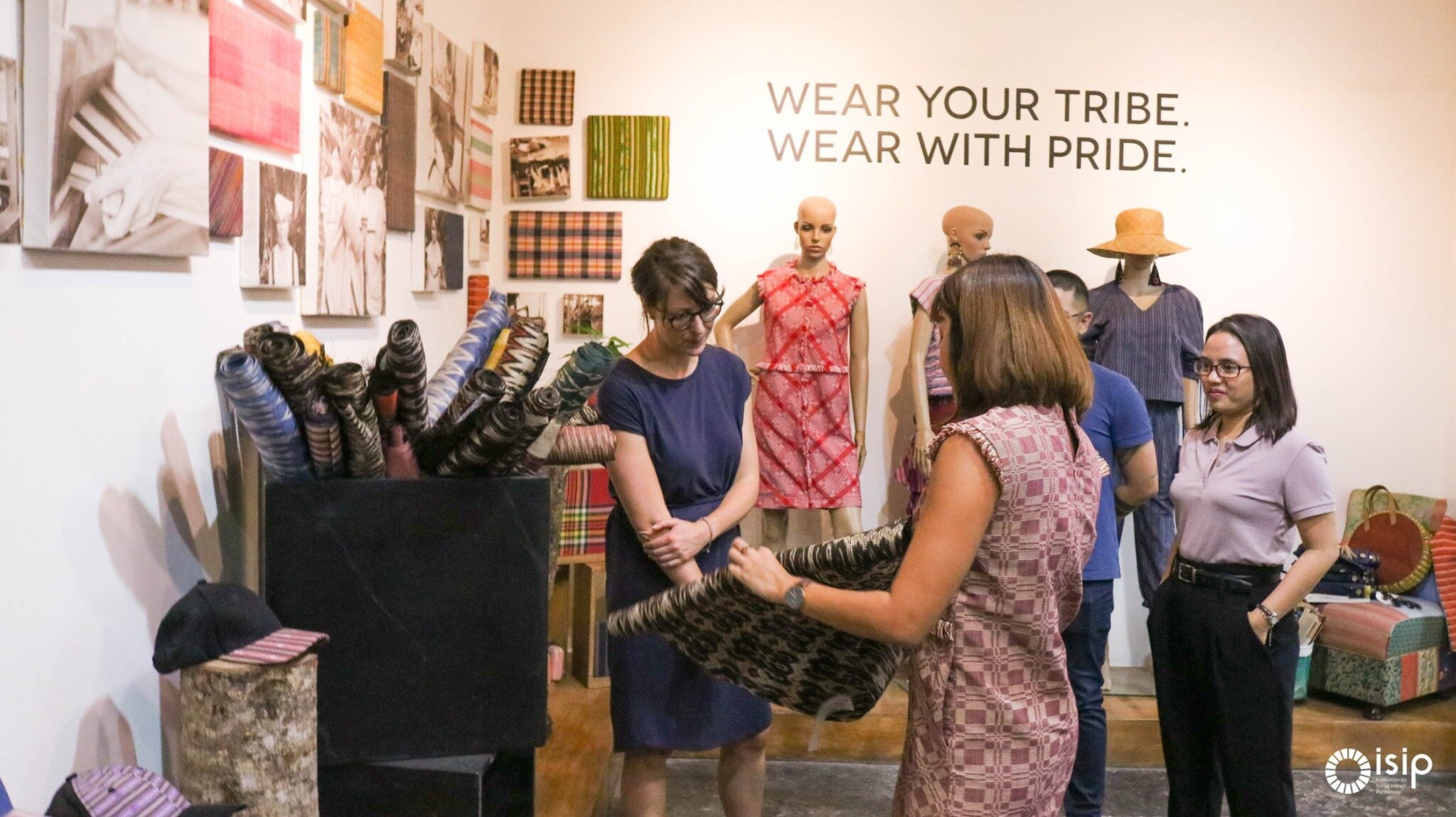Bridging Goals, Uniting Efforts: Reflections from the ISIP Visiting Professors Activity
by Angelo Timothy Dawa
Art by Jazmin Tan
When I joined the Innovation for Social Impact Partnership Project (ISIP) last January 2019, I already knew that I would be working with Higher Education Institutions (HEIs) from across the Philippines through the Education Component of ISIP. I was excited to learn with them as I also knew that we would be working together to strengthen the technology commercialization and social entrepreneurship ecosystem in the Philippines. In the process of doing so, I didn't really expect that I would also be exposed to the international Technopreneurship ecosystem, which was a great experience for me as I worked in planning and implementation of the ISIP Visiting Professors Activity.
Sharing Best Practices from Across the Globe
The overarching goal of the Visiting Professors activity is to bring entrepreneurial culture and skills into the higher education system of the Philippines. Specifically, it aims to guide Philippine HEIs towards becoming a more Technopreneurial-ready university. [READ: Are Philippine Universities Ready for Impact-Driven Technopreneurship?]
During the first batch of the ISIP Visiting Professors deployment last 2019, four international professors were deployed to five host universities in the Philippines. In a span of a week, the visiting professors delivered lectures, conducted workshops, and facilitated consultation sessions with an aim of strengthening the Technopreneurship programs and initiatives in their host universities. The visiting professors also maximized their stay in the Philippines by getting immersed in the local social entrepreneurship ecosystem of the universities where they got deployed.
Exchanging Insights, Culture, and Food
As the ISIP Education team greatly helped in arranging and coordinating the sessions, I was able to see how culture played a big role in the way that universities in the Philippines and abroad operate and design both their academic and non-academic programs. Following the ISIP Visiting Professor’s tagline, “Immerse, Share, Grow,” the cultural immersion was at the forefront of the deployment. Each deployment orientation started with brief conversations on common phrases used, local delicacies, and behaviors to be mindful of. Setting the ground and tone in every visiting professor deployment had been the key start for deeper discussions.
The cultural immersion greatly helped in providing more context on the lectures and workshops delivered by the Visiting Professors as it also gave an overview of the needs of the host universities, particularly in terms of knowing why they identified them as needs and why they are facing difficulties in addressing those. I never would have thought that even something as simple as chatting while sharing must-try dishes would be beneficial in improving the work plans of each deployment.
Even I, who was there only to coordinate and facilitate the deployments, learned so much about our partner universities and how we can further work together beyond the ISIP Visiting Professors Activity in strengthening the entrepreneurship ecosystem in the Philippines. The experiences that I gained through the said activity taught me that differences in culture and language should not be seen as barriers. It should be celebrated as a way of connecting with others to better understand the challenges we're facing and recognize the values of the opportunities being presented to us.
Developing Virtual Relationships
Moving forward with the second batch of the ISIP Visiting Professors Activity, I got more excited as we, the ISIP Education team prepared for the deployment since I was aware that we would be working with ten new host universities in the Philippines. However, together with the rest of the world, the COVID-19 pandemic forced us to shift all our activities at ISIP to online platforms.
Challenges of shifting to virtual include the typical problems encountered in the online setup such as dealing with time differences, zoom fatigue, and people often multitasking which then lead to less engagement on the activities. The ISIP Education Team, together with the host universities and accepted visiting professors, facilitated many pivots in the deployment design to tailor-fit the ISIP Visiting Professors activity in an online setup.
As we started with the virtual deployments, additional concerns surfaced such as having limited avenues for relationship building, difficulties in arranging sessions with universities, and foremost, the cultural immersion. Each deployment explored various innovative solutions that were within the capacity of the participants and the resources available, which also seemed to be effective as we pulled off the sessions.
Needless to say, the second batch of deployment in 2020 was very different from the deployment that we had back in 2019. But still, all ISIP Visiting Professors deployment managed to attain the ultimate goal of strengthening the capacity of HEIs to implement activities and develop initiatives towards becoming a more Technopreneurial-ready university. Some key things to be noted in all the 15 deployments that we had would be the clarity in communication and the willingness of the universities to take actions in addressing their needs and achieving their goals.
Expanding Networks and Ensuring Sustainability
As the ISIP Education team experienced implementing both face-to-face and virtual deployment, we understood the true essence of conducting the ISIP Visiting Professors activity. Beyond learning from "experts" in different parts of the globe, this activity provides an avenue for cultural exchange that fosters connection and communication with people who get to experience similar struggles, and work consistently to learn and grow together.
Through the ISIP Visiting Professors activity, I realized that expanding networks is more than just building your profile. It’s also about finding your place in the ecosystem and building a community. For us in the ISIP Project, together with our partners, and all the stakeholders in the social entrepreneurship ecosystem, we will stay committed in nurturing a community of changemakers that is driven to create social impact through innovation and entrepreneurship.
Angelo Timothy Dawa served as the Coordinator for the Education Component of the ISIP Project. His work focused on developing and implementing capacity-building activities for Higher Education Institutions (HEIs) on integrating social impact in their innovation and technology entrepreneurship programs. As a Science-degree holder, Angelo works on projects that integrate his knowledge in the sciences and his passion for nation-building & community development.



